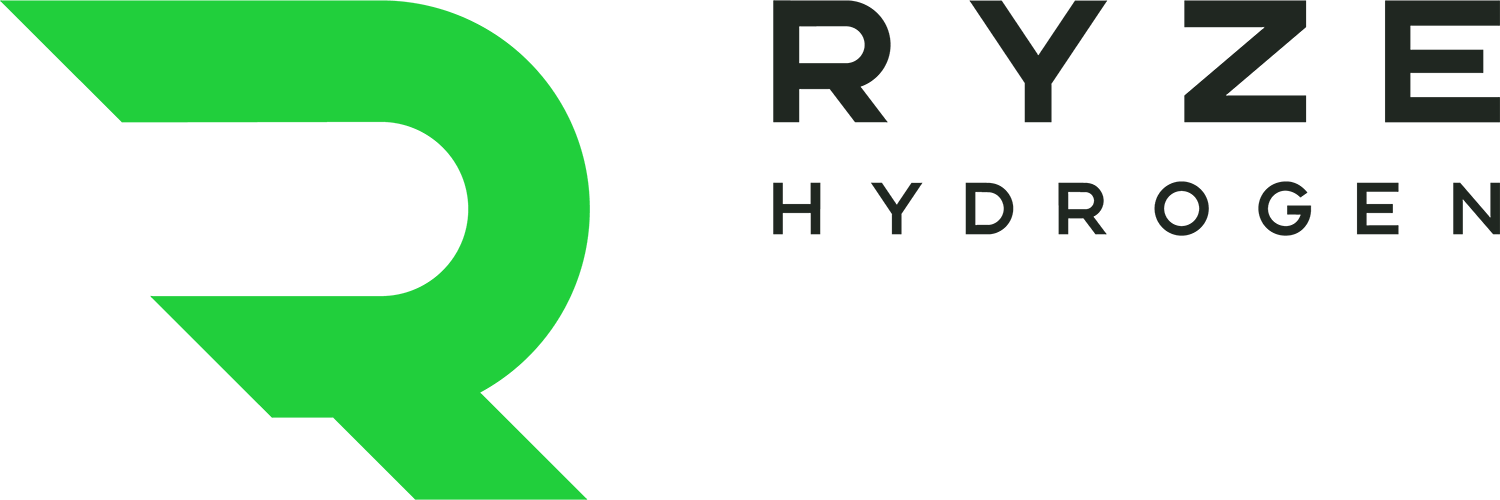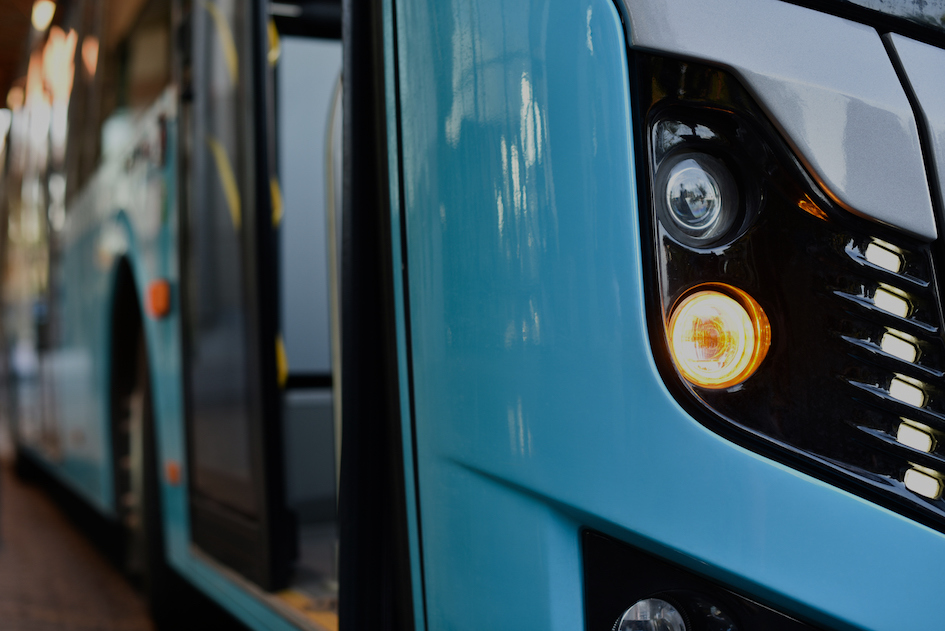Hydrogen may be the fuel of tomorrow, but it is also the fuel of today, as a number of recent announcements show.
At the end of June, the Go-Ahead Group, one of the UK’s largest bus and rail operators, put in an order for 54 hydrogen fuel cell buses to carry passengers around Gatwick Airport and the surrounding area.
The single-decker GB Kite Hydroliner buses will be built by Wrightbus, one of the UK’s biggest bus manufacturers and a pioneer in hydrogen and battery electric vehicles. The buses have a range of up to 640 miles and can carry up to 90 passengers making them a perfect fit for the routes around Gatwick that are intensively used, operating 24 hours a day, 365 days a year.
As well as being one of the largest hydrogen bus orders in the UK and globally, the GB Kite Hydroliners are the first hydrogen powered vehicles in Go-Ahead’s fleet of more than 6,000 buses. The hydrogen fuel will be stored in liquid form at Metrobus’s Crawley depot and converted to gas to be held in tanks on the roof of the vehicles.
The liquid hydrogen refuelling station in Crawley is owned and operated by world leading industrial gas company Air Products. Once completed, it will be the largest of its kind in Europe, creating enough fuel for over 100 buses a day.
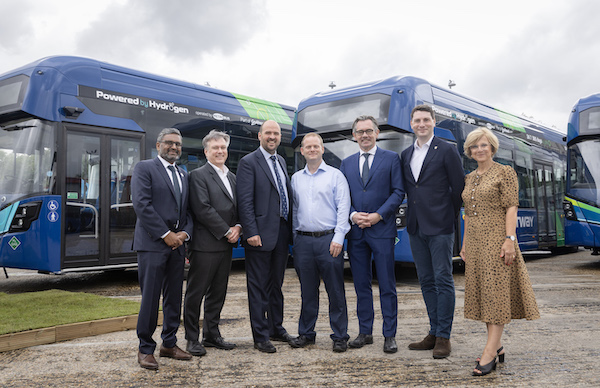
The Go-Ahead Group, one of the UK’s largest bus and rail operators, have placed an order for 54 hydrogen fuel cell buses (one of the largest orders of its kind) to carry passengers around Gatwick Airport and the surrounding area. Pictured: Left to right – Manish Patel, Mobility Director for Air Products, Henry Smith, Member of Parliament for Crawley, Richard Holden MP, Minister for Roads and Local Transport, Ed Wills, Managing Director for Brighton and Hove Buses and Metrobus
Communities and commuters across the country know how important buses are – and these UK-made hydrogen buses could revolutionise transport for millions, bringing quieter and smoother journeys,” Richard Holden MP, Minister for Roads and Local Transport, said at the launch.
A month earlier, in California, Hyundai was showcasing its Xcient fuel cell truck in the U.S. for the first time following several years in markets including Switzerland, Israel, South Korea and New Zealand.
The Xcient has a driving range of over 450 miles (724 km) and can carry a maximum load of 82,000 lbs (37,000 kg). That’s long enough for the vast majority of heavy duty truck journeys. In the EU, only 5% of heavy duty vehicle trips are longer than 400km, while in the US, 6% of heavy trucks make journeys longer than 500 miles.
____________________
Related content:
These hydrogen hubs are driving the UK’s energy transition
____________________
Hyundai’s fleet of 47 Xcient Fuel Cell heavy-duty trucks in Switzerland has driven more than 5 million km in two years, the company said in October last year. Refuelling a full tank of hydrogen takes about 8 to 20 minutes, depending on the ambient temperature, it says.
“We firmly believe that hydrogen is one of the most powerful and pragmatic solutions for achieving our vision of ‘Progress for Humanity’ with emission-free mobility as a fundamental pillar for a sustainable society,” said Hyundai’s Global Commercial Vehicle and Hydrogen Fuel Cell Business Ken Ramirez.
The U.S. market should be an even bigger opportunity for Hyundai’s Xcient than Europe thanks to the longer average distances covered by truck drivers and the looser rules on how long drivers can stay on the road before taking a break. In the EU and the UK, drivers have to take a minimum 45-minute break after driving for a maximum of 4.5 hours, while in the U.S. drivers can go for 8 hours before they have to break for 30 minutes.
Hyundai is by no means the only truck maker investing in hydrogen. MAN, one of Europe’s largest truck makers, has been working with Nuremberg University, Bosch, Faurecia and ZF Group to develop a hydrogen fuel cell vehicle since 2020. A prototype is set to be delivered to five customers in mid-2024, BayWa, DB Schenker, GRESS Spedition, Rhenus Logistics and Spedition Dettendorfer, who will test them in real-life operations for a year.
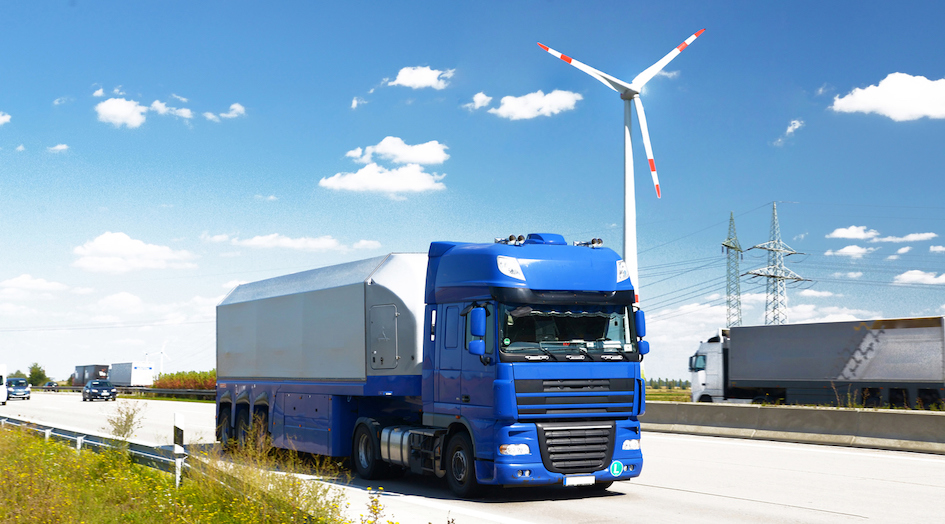
Hyundai’s fleet of 47 Xcient Fuel Cell heavy-duty trucks in Switzerland has driven more than 5 million km in two years, the company said in October last year. Refuelling a full tank of hydrogen takes about 8 to 20 minutes, depending on the ambient temperature, it says.
Even more committed to hydrogen is Daimler Truck, which sees hydrogen as being valuable not just for the longer range but for the flexibility it provides in terms of green energy sourcing.
“In the future, hardly any country in the world will be able to be self-sufficient when it comes to green energy at competitive prices,” says Andreas Gorbach, head of truck technology at Daimler Truck.
“Consequently, they will have to engage in global trade with CO2-neutral energy sources. Green hydrogen will play a central role here.”
Daimler Truck’s Mercedes-Benz GenH2 Truck fuel-cell prototype has been in testing since 2021 and a production vehicle with 1,000km range or more is planned for 2027.
While hydrogen trucks and buses are hitting the roads today, the next few years should see a step change in adoption as the cost of hydrogen fuel comes down and a wider range of vehicles become available.
To learn more about Ryze Hydrogen, click here.
